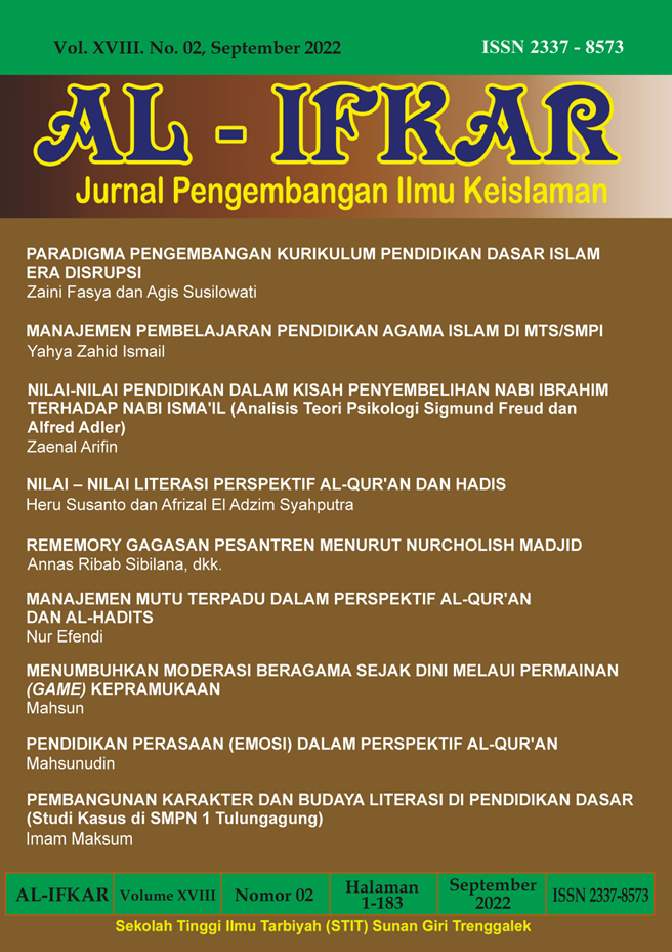Pendidikan Perasaan (Emosi) Dalam Perspektif Al-Qur’an
Abstract
Abstract
According to Martin, the existence of feelings (emotional) in humans is like a knife, where at the same time a knife can help and harm. For example, when someone uses a knife to cut vegetables, at that time the knife can injure someone's hand if they are not careful when using it. Feelings (emotional) that are well controlled can increase enthusiasm, satisfaction, mutual trust, and commitment which in turn have a major impact on improving the quality of human life. On the contrary, as has been experienced by humans, feelings (emotional) that are not properly controlled often have bad consequences and are detrimental to the humans themselves and others. Feelings (emotional) as an important part of the human psyche will not be separated from the totality itself. Almost every behaviour we have has some connection with emotions. Emotions and feelings (emotion & feeling). Both are used overlapping in everyday conversation. When someone asks other people how they feel when their boyfriend betrayed them, rarely do people ask, "How are your emotions?", most people will ask, "How do you feel?" According to Danarjati, in everyday language, the word emotion is rarely used. The word feeling is much more commonly used. The function of emotion is as a motivation in behaving. Emotions also make individuals ready or not ready to interact with their environment through physiological changes. Robert explained that there are three functions in emotion, namely: 1) its function is to prepare someone to do something; 2) its function is to shape human behaviour in the future; 3) its function is to communicate properly and effectively with other people.
Keywords: Education, Emotions, and the Koran


